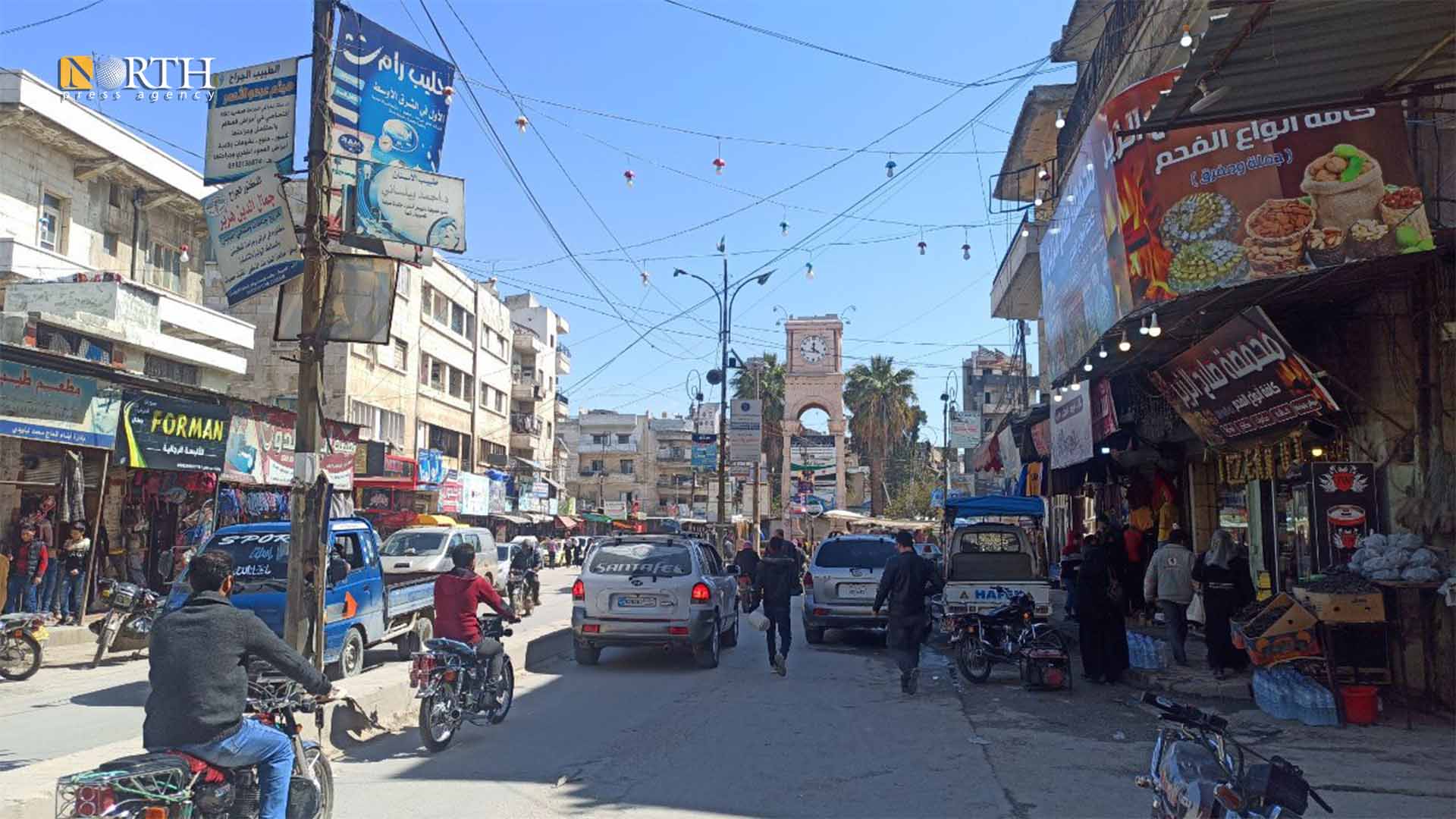After one year of circulating in Turkish lira… Residents talk about its negative aspects in Syria’s Idlib
IDLIB, Syria (North Press) – Residents of Idlib say that the value of the Turkish lira, like the Syrian pound, has collapsed against the US dollar, which has caused an increase in daily expenses.
The prices of basic commodities in the areas held by the Turkish-backed Syrian opposition in Idlib, northwestern Syria, are related to the exchange rate of the Turkish lira, which has witnessed a significant decline against the US dollar.
On Sunday, the Turkish lira was recorded at 7.54 against one US dollar, while one Turkish lira was equivalent to 513 Syrian pounds (SYP), according to the Lira website.
Any decline in the Turkish lira has become a main factor in an unprecedented rise in the prices of materials, while it is not usually affected by any improvement in the currency, as happened in recent weeks.
Since June 2020, the Syrian Interim Government and the Hayat Tahrir al-Sham (HTS) affiliated Salvation Government issued a decision to use the Turkish currency instead of the Syrian pound.
Increasing daily allowance
Idlib resident Muhammad Suleiman told North Press that his daily home allowance has increased significantly.
“In the days of the Syrian pound, my family’s daily expenditure was about ten thousand Syrian pounds, while today it is not less than 40 Turkish liras (about 20,000 SYP), meaning that the expense has doubled,” he added.
He pointed out that this difference increased the burden of living, especially in light of the current conditions in which they live.
“With every slight increase in the price of the Turkish lira, goods’ prices rise in a crazy way, while prices do not decrease when the value of the Turkish lira decreases,” Suleiman said.
“Merchants seized the opportunity to increase profits at the expense of the people, in the absence of an authority capable of ensuring consumer protection,” he added.
Since the first months of dealing in the Turkish lira in the northwestern regions of Syria, negative repercussions have emerged from the decision, especially for workers and those with limited incomes who bear the fluctuation of exchange rates.
Nour Qatini, an IDP from Khan Sheikhoun living in Idlib, believes that the living situation before the decision to use the Turkish lira was better than now.
“We were optimistic about replacing the Syrian currency with the Turkish currency, but in the early days we noticed that the expenses increased, and the citizen felt lost between the Turkish lira, the Syrian pound, and US dollar,” Qatini said.
No benefits
Idlib resident Mo’az Youssef told North Press that dealing with the Turkish lira has no benefits, and that the situation is getting worse.
“100 Turkish lira is about 50,000 SYP; I spend it in less than a day, while 50,000 SYP was enough for me for a week when dealing in the Syrian pound a year ago.”
The prices of basic materials have not stabilized since the start of dealing in the Turkish lira, especially fuel, which has been affected by the Turkish lira.
Samer Halil, a displaced person from the countryside of Hama residing in Idlib, told North Press that the HTS-owned WATAD Petroleum company is the only one that benefits most from replacing the Syrian pound with the Turkish lira.
“The company started raising fuel prices daily under the pretext of the decrease in the price of the Turkish lira against the dollar, until we reached the stage that every morning it imposes a higher pricing wedge,” Halil said.
Economic dependency
Hayan Abu Rashid, an economist, told North Press that one of the disadvantages of dealing in the Turkish lira is the dependence of the economy of Turkish-held areas to the economy of the Turkish state.
“Turkey has been subjected to economic sanctions that have weakened the purchasing power of its currency, thus weakening the economy of the [opposition] areas that deal in the same currency,” according to Abu Rashid.
“These sanctions did not exist when the decision was made to replace the Syrian currency with the Turkish currency, in addition to the absence of a central bank in the liberated areas, which negatively affects it,” he added.

